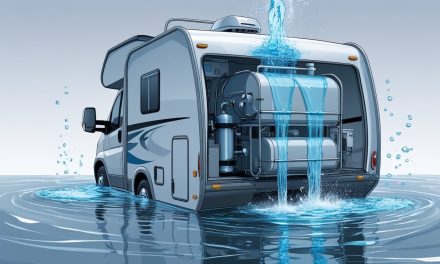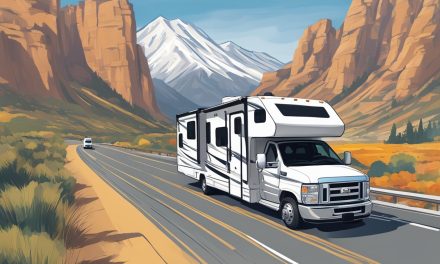Staying connected on the road is a top priority for modern RVers, whether for work, streaming, or keeping in touch with loved ones. But with so many internet options available, which one reigns supreme among travelers? We recently asked our readers in our newsletter poll: “Which type of RV internet solution do you prefer?” The results are in, and they reveal some fascinating trends about how RVers stay online. If you missed this poll, don’t worry—there will be more! Make sure to vote in future surveys so your voice can help shape the insights we share. Now, let’s dive into the data and see what fellow adventurers are using to stay connected.
The Poll Results: How RVers Get Online
Here’s how the votes broke down:
| Internet Solution | Percentage of Votes |
|---|---|
| Mobile hotspot | 44% |
| Satellite internet | 41% |
| RV park Wi-Fi | 15% |
| Public Wi-Fi | 0% |
Would you like to save this article?
The competition was tight between mobile hotspots and satellite internet, while RV park Wi-Fi trailed behind. Surprisingly, public Wi-Fi didn’t get a single vote—clearly, RVers aren’t relying on coffee shop connections!
Why Mobile Hotspots Are King (For Now)
Convenience & Flexibility Win
The 44% preference for mobile hotspots makes sense—most RVers already rely on smartphones or dedicated hotspot devices for connectivity. Services like Verizon, T-Mobile, and AT&T offer strong coverage in many areas, making it easy to get online without extra equipment. Plus, with 5G expanding, speeds are often fast enough for remote work and streaming.
Satellite Internet: A Close Second
Satellite internet (41%) is a favorite among boondockers and those venturing off-grid. Providers like Starlink have revolutionized RV internet with reliable, high-speed connections almost anywhere. While the upfront cost is higher, the freedom to work or binge Netflix in remote locations is a game-changer.
RV Park Wi-Fi: The Underperformer
Only 15% of voters preferred RV park Wi-Fi, and it’s no surprise why—many campgrounds offer sluggish, overcrowded networks. While some luxury RV resorts provide strong connections, most travelers seem to view park Wi-Fi as a last resort rather than a primary solution.
Public Wi-Fi: The Big Zero
The fact that 0% of RVers rely on public Wi-Fi speaks volumes. Security risks, unreliable speeds, and the hassle of finding open networks make this option a non-starter for most.
Our Take: Why These Results Make Sense
The near-tie between mobile hotspots and satellite internet reflects the two biggest needs of RVers: convenience and coverage. Mobile hotspots win for everyday use due to their simplicity, while satellite internet caters to off-grid adventurers who need reliability beyond cell towers.
Meanwhile, RV park Wi-Fi’s low ranking highlights a common pain point—campgrounds need to step up their internet game if they want to attract digital nomads. And as for public Wi-Fi? It’s clear RVers value security and stability over free (but risky) connections.
Featured Image
[Insert featured image here: “RVer using laptop with satellite dish and mobile hotspot nearby” (illustration, under 128KB, .jpg)]
Final Thoughts
The future of RV internet is leaning toward hybrid setups—combining mobile hotspots for everyday use and satellite for off-grid trips. As technology improves, we may see even more RVers ditching unreliable park Wi-Fi altogether.
What’s your go-to RV internet solution? Let us know in the comments, and keep an eye out for our next poll!
Would you like any adjustments to the tone or additional details? Also, I can’t directly create or attach images, but you can use an AI image generator or stock photo site to create a fitting illustration based on the description provided!







